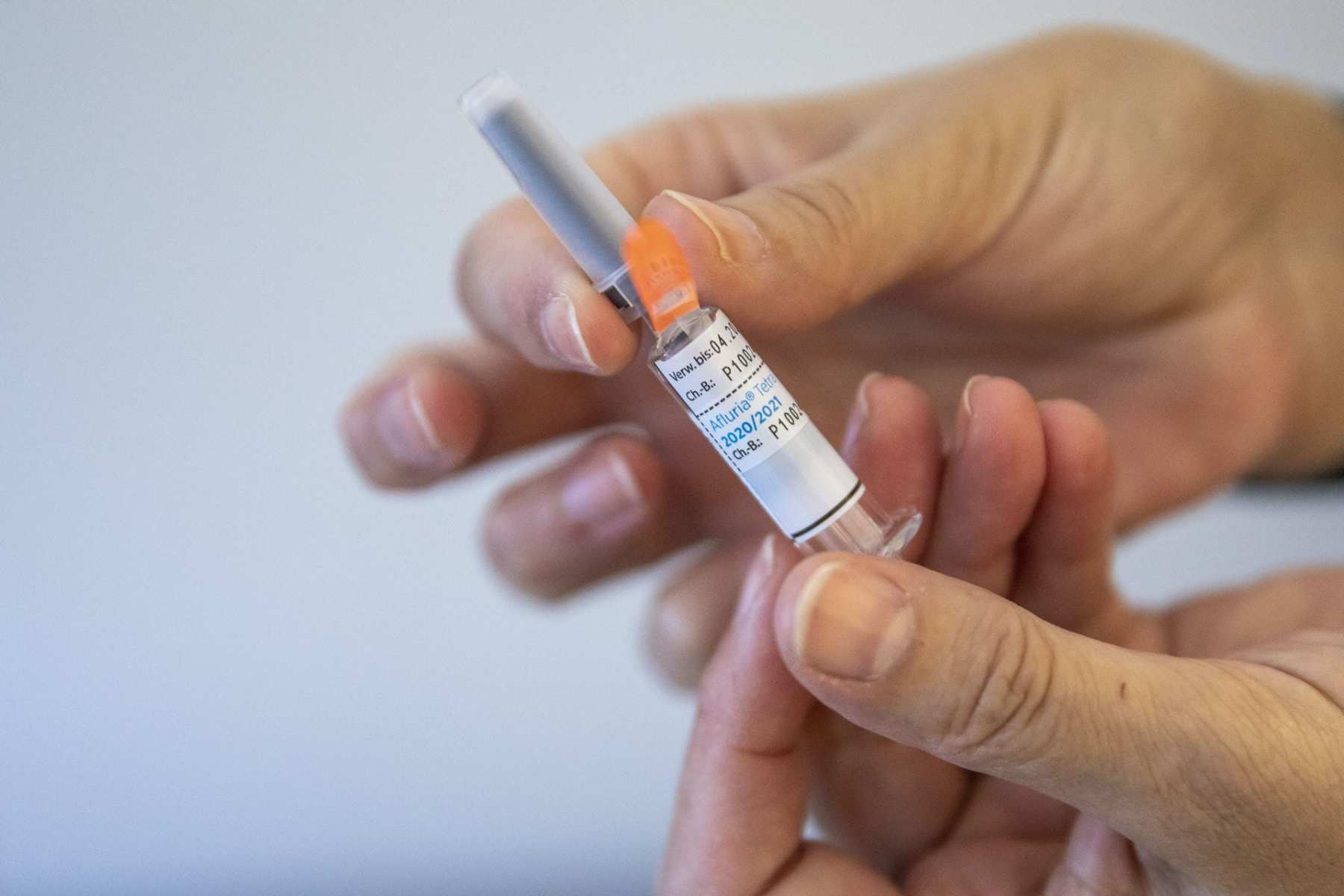Despite heightened risk of severe complications, pregnant people often don’t get flu shots or the TDAP vaccine, which protects against tetanus, diphtheria and whooping cough. People insured by Medicaid — which covers almost half of all births in the country — are far less likely to get those shots compared to those on private insurance.
Two new pieces of bipartisan legislation are trying to address that by eliminating the cost-barriers that often keep pregnant people from getting necessary vaccinations.
The two bills, shared first with The 19th, are jointly backed by Sens. Maggie Hassan, a New Hampshire Democrat, and Bill Cassidy, a Republican from Louisiana. The first would require that Medicaid plans cover these vaccines during pregnancy without any out-of-pocket costs for patients, along with any other immunizations recommended by the federal Advisory Committee on Immunization Practices. The second bill would require the federal government to issue guidance to states about how to improve vaccination rates, and institute data collection procedures to better track Medicaid’s rates of perinatal vaccinations.
“Far too many pregnant women and their babies become seriously ill, and even die, from preventable illnesses. We must do more to ensure that they receive the health care that they need,” said Hassan.
Neither bill has any other sponsors. But both efforts would go a long way toward addressing shortfalls in pregnancy-related health. Right now, Medicaid benefits vary from state to state — not all cover flu shots and TDAP vaccines.
“This is super important and should have happened sooner,” said Dr. Lindsay Admon, an OB-GYN at the University of Michigan who researches pregnancy-related health care and outcomes.
Research shows that when people on Medicaid have to pay out-of-pocket for vaccines, they are far less likely to actually get those shots. That especially matters in pregnancy: Pregnant people who contract the flu are more likely to go to the hospital or die. The virus can affect fetuses, too, leading to neural tube defects and other adverse outcomes. Meanwhile, the TDAP vaccine is highly recommended for pregnant people to protect newborns from whooping cough, which can be particularly dangerous in infants.
Data from the Centers for Disease Control and Prevention shows that between 2016 and 2017, the most recent year with publicly available information, only 50 percent of pregnant women got flu shots. That same year, about 15 percent of pregnant women didn’t get a TDAP shot. (The data only included women.)
Separate research showed that pregnant women on Medicaid — who are more often lower-income, and more often Black and Latinx — had far lower immunization rates. A 2019 study, meanwhile, showed that Black pregnant women in particular were 30 percent less likely to get the flu shot compared to White ones. Those studies also only included women.
Private and public insurance aren’t treated equally. The Affordable Care Act bans cost-sharing for preventive services like medically recommended vaccines. But Medicaid has no such mandate. Experts say that eliminating co-pays and mandating vaccine coverage within Medicaid could close major socioeconomic and racial disparities.
But costs are only one barrier, noted Dr. Geeta Swamy, an associate professor of obstetrics and gynecology at Duke University. There’s also the issue of whether a pregnant person’s primary doctor offers vaccines. If, for instance, patients are referred somewhere else for a shot, they’re far less likely to get one.
“I could look at you and say, ‘You should get it, but I can’t give it to you, you have to go downtown and park there and tell them you’re pregnant and wait in line,’” she said. “It’s not as convenient.”
Both Admon and Swamy agreed that better data collection could go a long way in addressing vaccination shortfalls. But it should be coupled, they argued, with funding that could, for instance, direct public health campaigns or otherwise help improve people’s odds of getting a vaccine.
Still, more robust Medicaid benefits could be undercut if the ACA — which will come before the Supreme Court this November — is ultimately struck down. Legal experts argue that the likely confirmation of Amy Coney Barrett as the court’s ninth justice increases the chance that the law is overturned.
It’s easier to qualify for Medicaid when pregnant. But people covered through Medicaid may not be eligible for the assistance program before or after pregnancy, especially in states that opted out of the ACA’s provision to expand eligibility. That means they have a smaller window to get a flu vaccine — especially if it’s only available before they get pregnant, when they may not have health insurance — and are therefore more likely to go without the shot.
If the ACA is overturned and no replacement implemented, many more people would lose pre-pregnancy and postnatal insurance, Admon and Swamy both said, increasing barriers to those vaccinations.
“For women who are uninsured before pregnancy, it’s going to be harder to get the flu vaccine, or if there’s a copayment that would prohibit uptake,” Admon said. “It could have devastating effects.”






